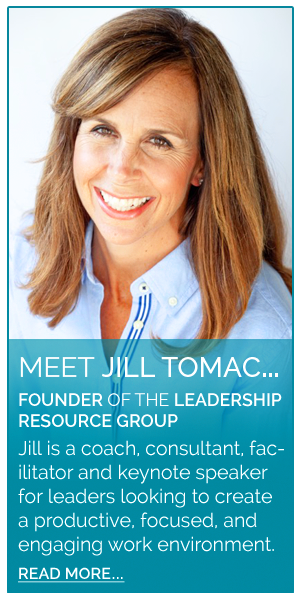What elevates a good leader to one who is exceptional?
Have you ever noticed that certain leaders have the ability to create environments where people are self-motivated, highly engaged, passionate about their work, AND achieve desired results?
In my twenty plus years of working with thousands of leaders, I have noticed certain qualities that set extraordinary leaders apart from their peers. I have observed these leaders bring out the best in others…not just in performance, but also in level of engagement.
I have seen these leaders inspire those around them to do more and be more.
While many factors contribute to strong leadership, I believe there are several qualities that set great leaders apart. I refer to this as …
Above PAR Leadership.
par: [noun] the usual standard or condition. [adjective] average or normal
above par: [adjective] going beyond what is expected, exceptional
Above PAR Leadership is the foundation that makes a good leader one who is exceptional. Three traits that build strong relationships, cultivate trust, and inspire others to achieve breakthrough performance.
P = POSITIVITY
Whether you think you can or think you can’t, you’re right ~ Henry Ford
Your thoughts are powerful. When you believe that something is possible you open your mind to explore productive solutions and focus on how to accomplish a goal. Contrarily, when you think something is out of reach, then your mind will fill with excuses, blame or justification for failure.
So what does this mean for you as a leader? As you engage with your team, you can either focus on what is working well or you can focus on what could be better. When your primary focus is on the gaps and issues, it can be frustrating and deflating for those around you. When you highlight the success and build upon strengths you will actually maximize performance.
[read: punctuate the positive ]
Research has demonstrated that positivity increases productivity. Barbara Fredrickson, a psychologist who studies positive emotions and author of Positivity stated, “Positive emotions broaden [our] scope of attention, cognition and action, and build physical, intellectual and social resources.” When you think and speak in a positive manner, you not only create an environment that feels good, but one in which people will perform at higher levels.
Think about it… when you have been faced with a challenge was it more productive to fill your mind with all the reasons you would fail OR to focus on how you were perfectly equipped to handle the situation?
For example, I have a friend who plays rugby. In his recent tournament his team captain told them “the other team is too strong, we aren’t going to win, so just play not to get hurt”. What do you think was the outcome? Of course they lost. Now if the captain had said “they are strong, but we are stronger, give it all you’ve got & we can win this!”, it quite possibly could have led to a very different outcome.
Your words are powerful, so why would you choose to beat someone down and plant the seeds of failure when you could just as easily use your words to build someone up and instill confidence of a winner?
A = AUTHENTICITY
I don’t necessarily have to like my associates, but as a man I must love them. Love is loyalty. Love is teamwork. Love respects the dignity of the individual. Heart-power is the strength of your corporation. ~ Vince Lombardi
There is a great deal of discussion around authentic leadership and what it really means.
Being transparent. Being true to yourself. Maintaining your own character despite external pressure.
While these are all true to some degree, these can also be harmful behaviors if executed in isolation. For example, if a leader shares information with complete transparency (just say it like it is), it may hinder trust and hurt relationships. Likewise, if a leader remains true to themselves, regardless of the needs of others and the situation it can also be damaging.
So, our traditional definition of authenticity; equating authenticity with being overly personal, vulnerable or transparent begs for trouble.
So what is authentic leadership? It ultimately evolves through ones own self development. Learning through successes and more importantly gleaning values and perspective through failures. Authentic leaders have taken the time to learn through their life experiences. In other words, they have done their work to understand where they came from and who they want to become.
[read: discovering your authentic leadership]
Authentic leaders have a willingness to seek out feedback, even the kind that may be difficult to hear. Exploring personal weaknesses as a means to becoming stronger and more resilient. Ultimately, it takes a willingness to “look in the mirror” and see how your own behaviors may be contributing to a problem or hindering desired results.
Authentic leaders see strength in others and recognize that everyone is capable of handling difficult situations and information. Far too often people in a leadership position are afraid to share the realities of a given situation, concerned that they may hurt or offend others. With all the best intentions they hide the truth or mask what is really going on as a means to protect and shield their constituents. In doing so, they undermine rust and tarnish their own credibility.
Recently Sheryl Sandberg, COO of Facebook and author of Lean In, speaks about authenticity from her own experience of losing her husband, David Goldberg, CEO of Survey Monkey. Sandberg writes,
I have learned that I never really knew what to say to others in need. I think I got it all wrong before; I tried to assure people that it would be okay, thinking that hope was the most comforting thing I could offer… Real empathy is sometimes not insisting that it will be okay, but acknowledging that it is not.
By buffering your message in attempt to bring comfort to yourself or others, you may inadvertently diminish the other person’s experience and in effect hurt trust.
Ultimately authentic leaders do not inspire more followers, but rather they show up, demonstrate confidence, and lead with the intention to create more leaders.
R = RESILIENCY
Success is not final, failure is not fatal: it is the courage to continue that counts ~ Winston Churchill
As the saying goes, life is 10% of what happens and 90% how you respond to it. One of the most powerful tools you have is your ability to bounce back regardless of what is going on around you. Jim Thompson, founder of the Positive Coaching Alliance describes a winning practice, E + R = O.
The Event + the Response = the Outcome.
In other words, the event itself does not create the outcome, but rather the actions you take in response to the circumstances will ultimately determine the result.
We all face adversity — we all fall down, yet it is not the failure that matters, it is your reaction that will either elevate you to a new level or pull you down.
When faced with a challenge or the opportunity to enter uncharted territory, exceptional leaders focus on strengths and internal resources that can lead to success rather than filling their mind with everything that could possibly go wrong. And if something does not work as planned, they focus on the immediate next step. The action that can turn the failure into their next success. They are not afraid of failure. They recognize that failure is essential to breakthrough results.
[read: 4 lessons in resiliency I learned on the winter slopes]
The most successful leaders not only are willing to take risks and accept potential failure, but also encourage others to do the same. They encourage others to think outside the box, take calculated risks, and ultimately walk to the edge of the cliff and take the leap. Strong leaders recognize that without acceptance of potential failure, it is very difficult to expand competencies. As Michael Jordan once said:
I’ve missed more than 9000 shots in my career. I’ve lost almost 300 games. 26 times, I’ve been trusted to take the game winning shot and missed. I’ve failed over and over and over again in my life. And that is why I succeed.
The good news is that Positivity, Authenticity, and Resilience are all traits that can be developed. Through honing your skills in these areas you can be the leader that inspires greatness and achieves breakthrough performance.




